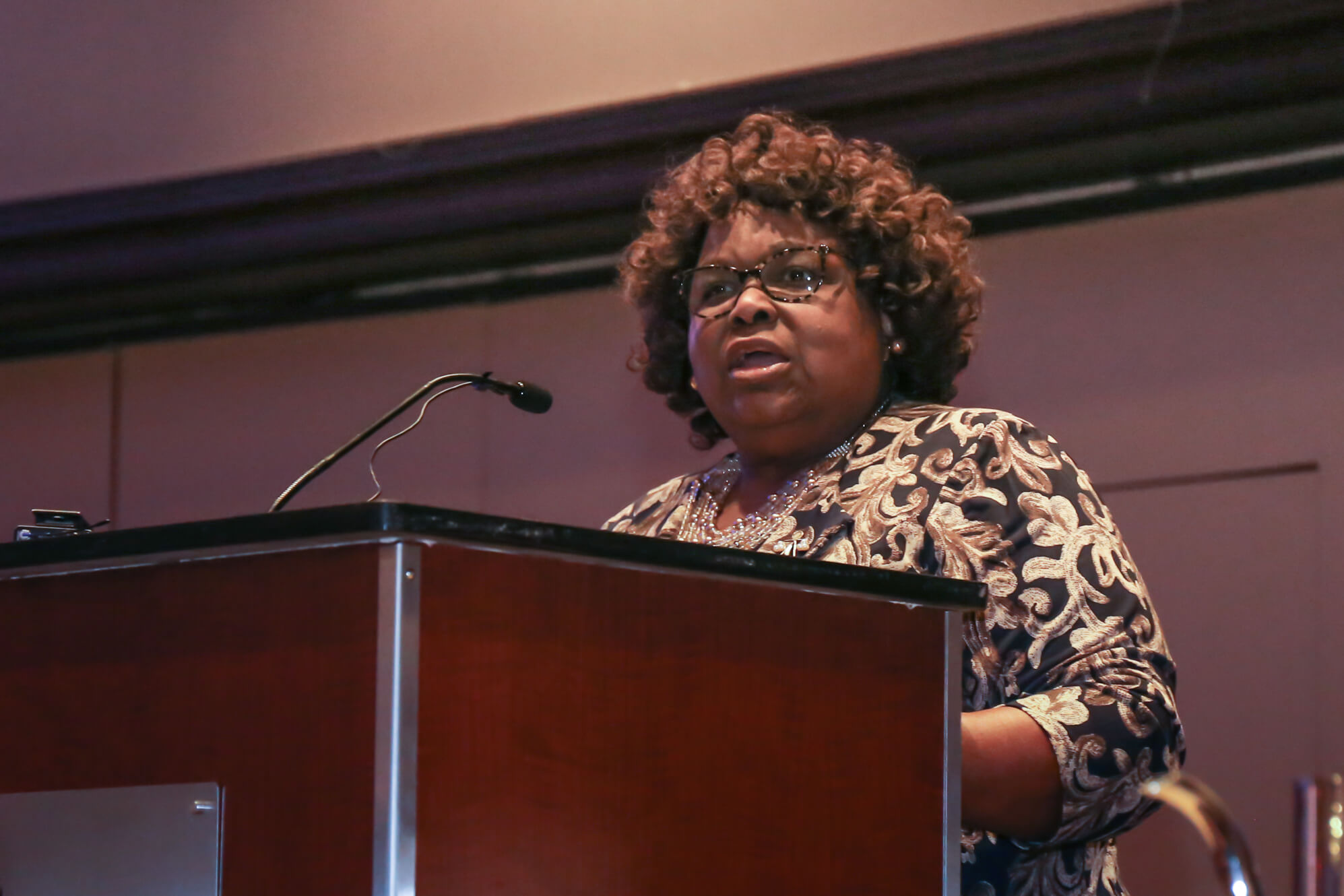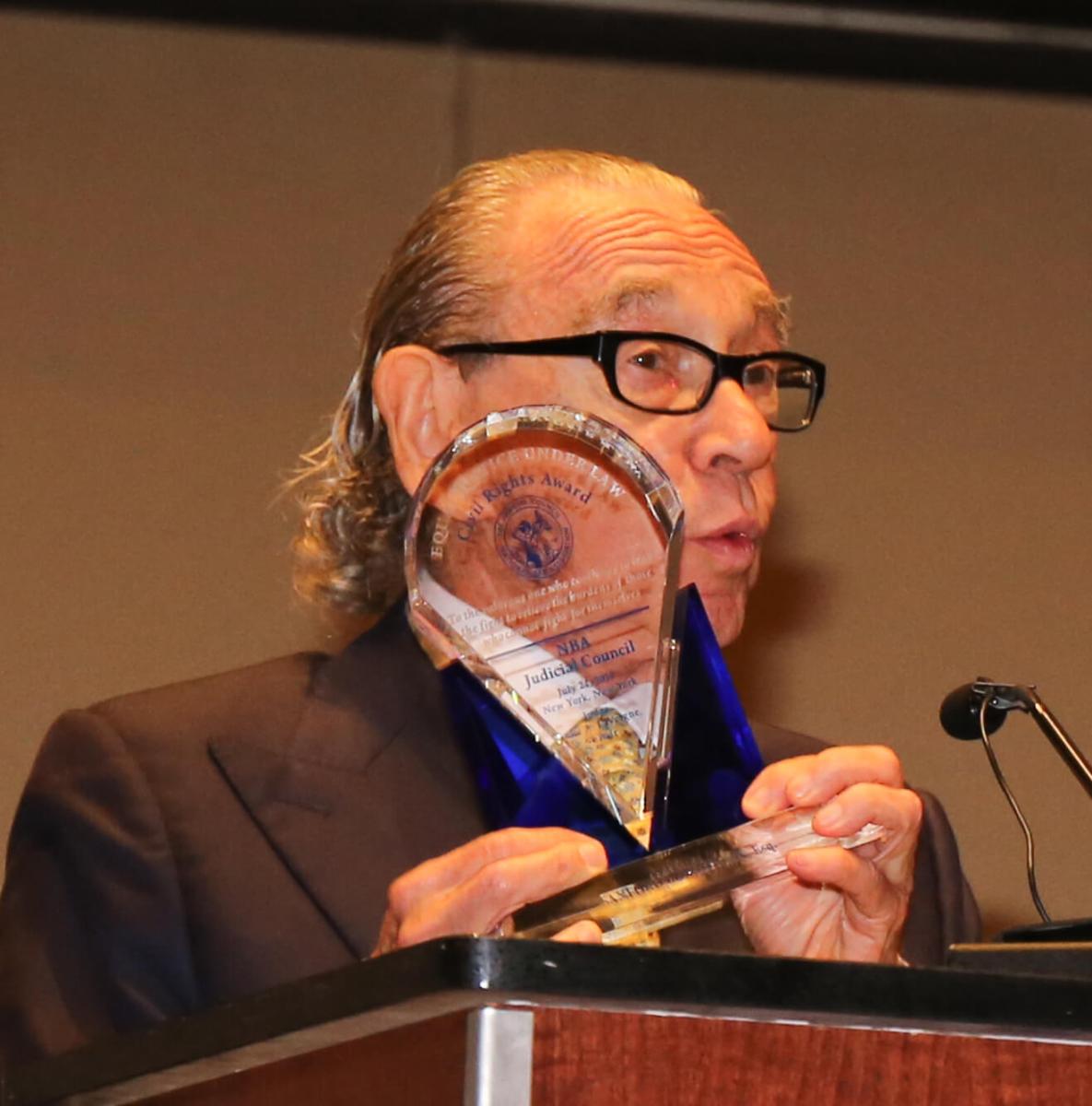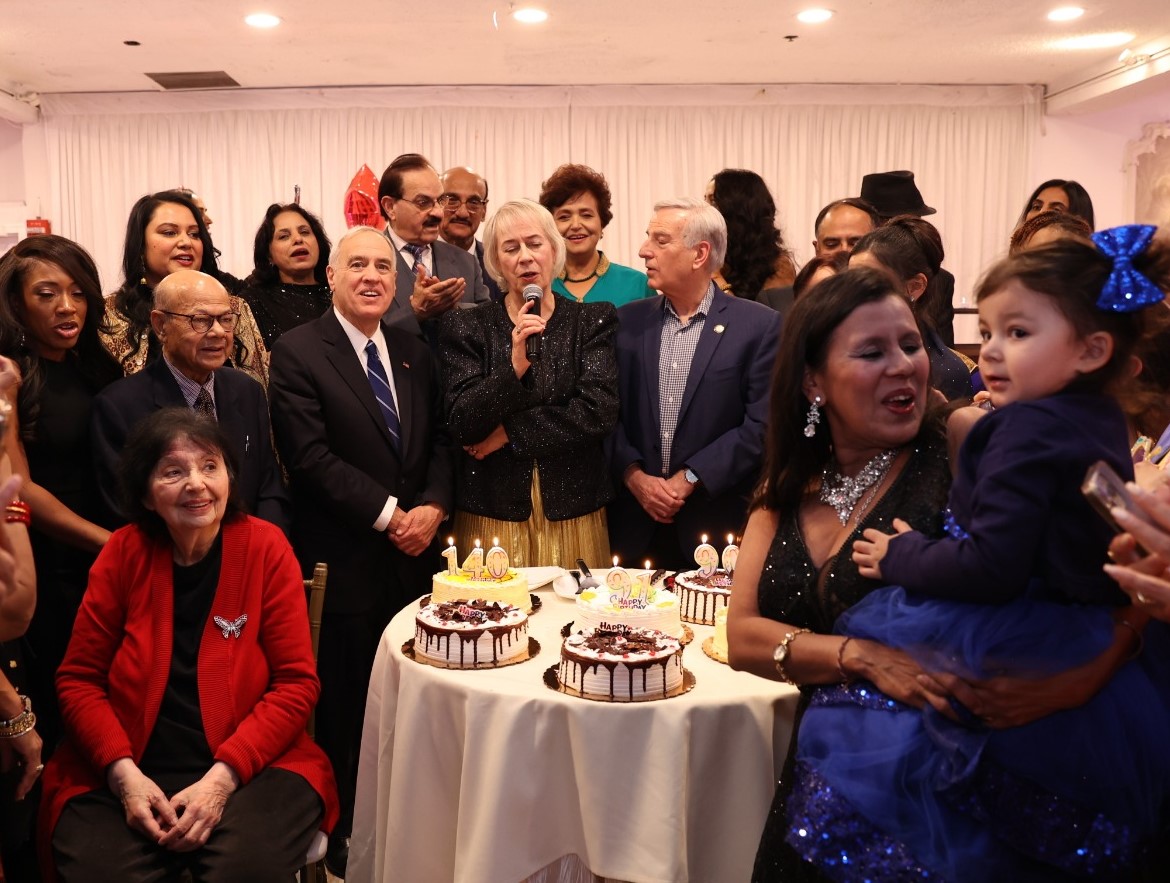BY TEQUILA MINSKY | During the National Bar Association’s Thurgood Marshall Judicial Awards Luncheon at the Sheraton New York Times Square on July 23, its Judicial Council, with 200-some lawyers and judges attending, honored five judges, as well as a New York civil-rights and social-justice attorney.
The National Bar Association is the nation’s oldest and largest national network of predominantly African-American attorneys and judges. It represents the interests of 65,000 lawyers, judges, law professors and law students throughout the United States and around the world. The organization was formed in 1925 when five of its founding members were denied membership to the American Bar Association.
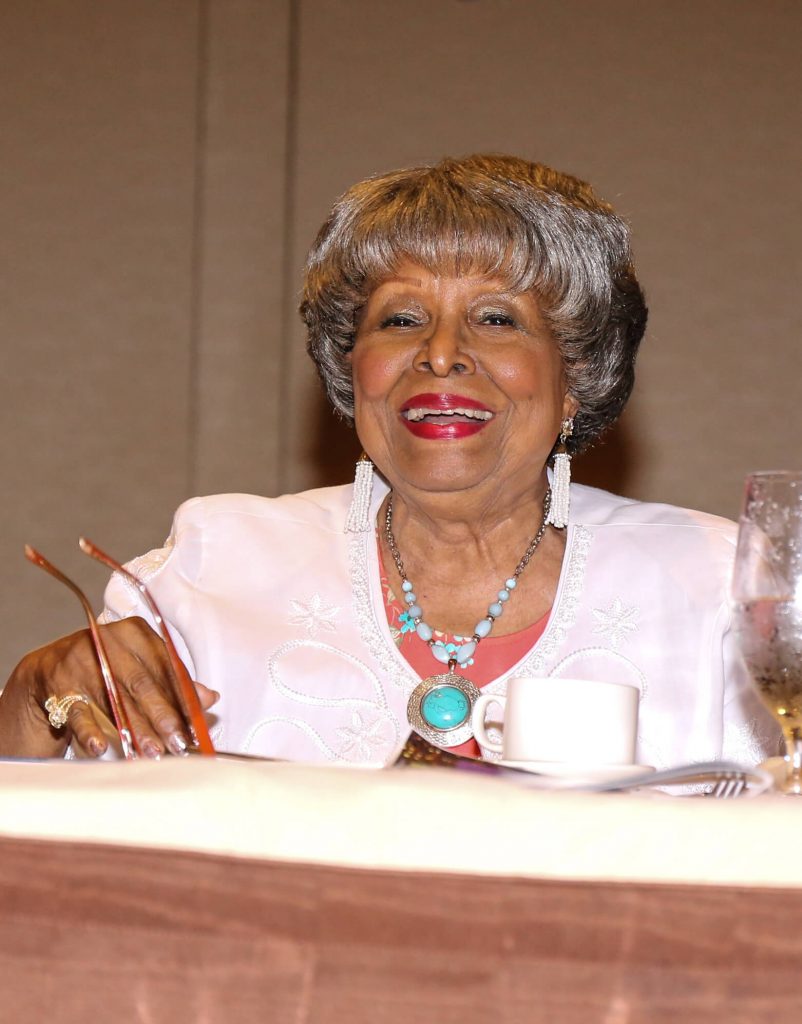
At its 48th annual meeting, two local legal professionals were honored among this year’s honorees.
Retired Judge Betty E. Staton received the Thurgood Marshall Award.
As a New York University School of Law student, Staton was always advocating to bring more black and Latino students into the law profession. Staton began her legal career in 1979 as a staff attorney at Bedford Stuyvesant Community Legal Services, leaving eight years later, to form with two other African-American women the first African-American female partnership in the country. Four years later, Mayor David Dinkins appointed her to New York State Family Court, on which she served for almost 20 years. On mandatory retirement, she returned as project director to B.S.C.L.S., which merged in 2012 with two other legal services to form Brooklyn Legal Services, of which she now is president.
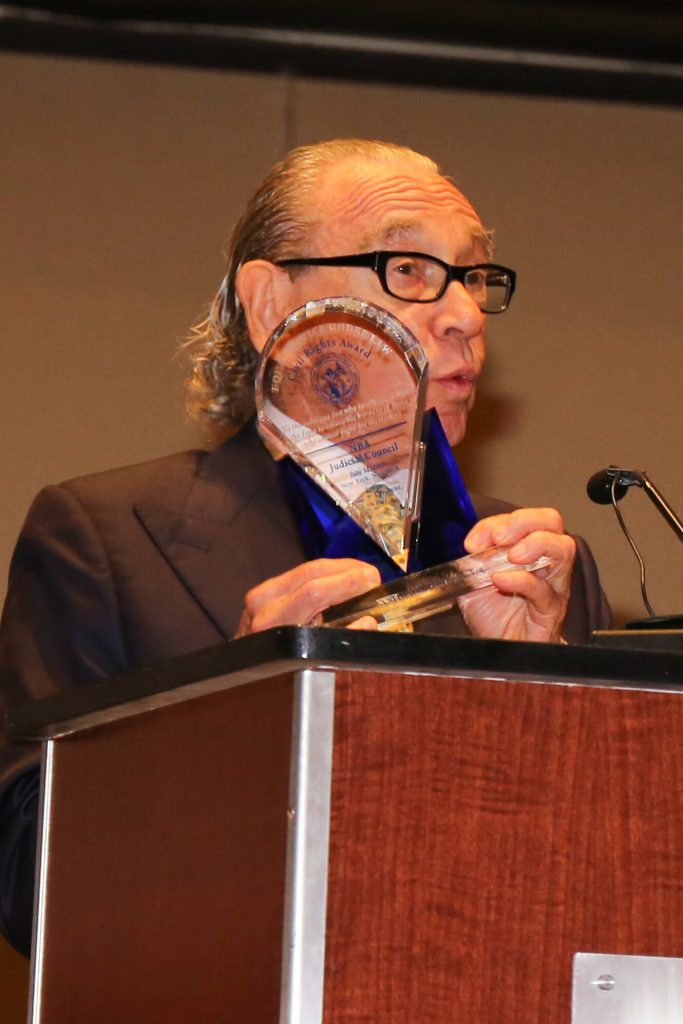
Attorney Sanford Rubenstein, one of the city’s top advocates for victim’s rights in personal injury, medical malpractice and civil rights matters, received the National Bar Association’s Chair’s Award for Civil Rights. He was recommended for this award by a Civil Court judge based on his work for civil rights.
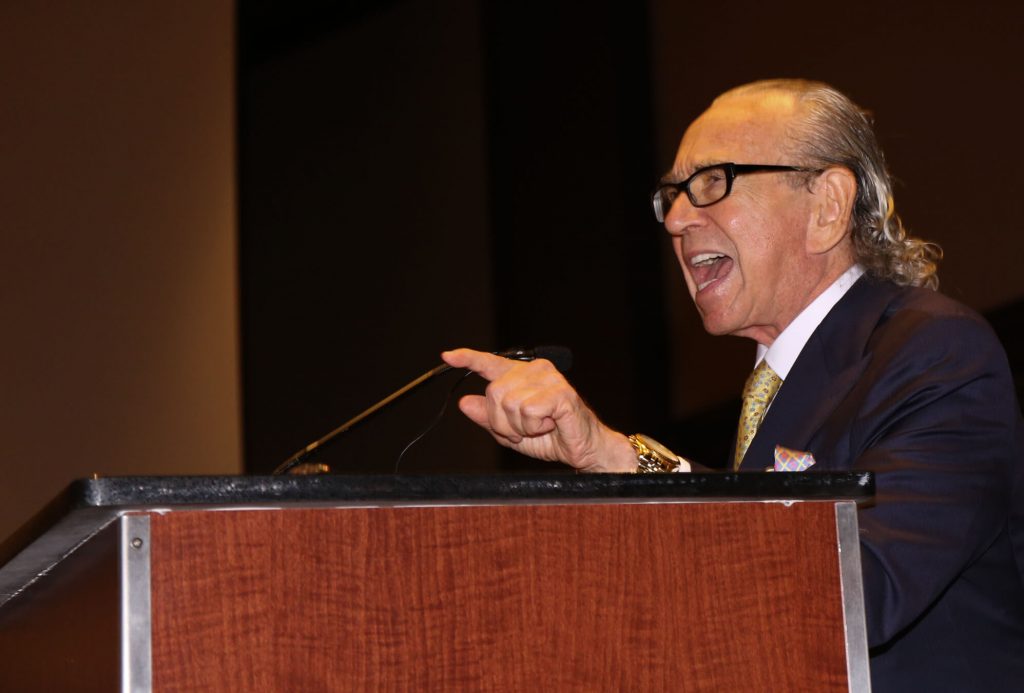
Rubenstein, who lives in Brooklyn, has represented numerous victims and families of victims of police brutality and wrongdoing in New York City, including Abner Louima, sodomized in a police precinct by a New York Police Department officer; the family of Sean Bell, who was killed in a police shooting the night before his wedding; the estate of Kalief Browder, who killed himself after spending 400 days in solitary confinement on Rikers Island; and the estate of Eric Garner in the early stages of litigation against New York City and the N.Y.P.D.
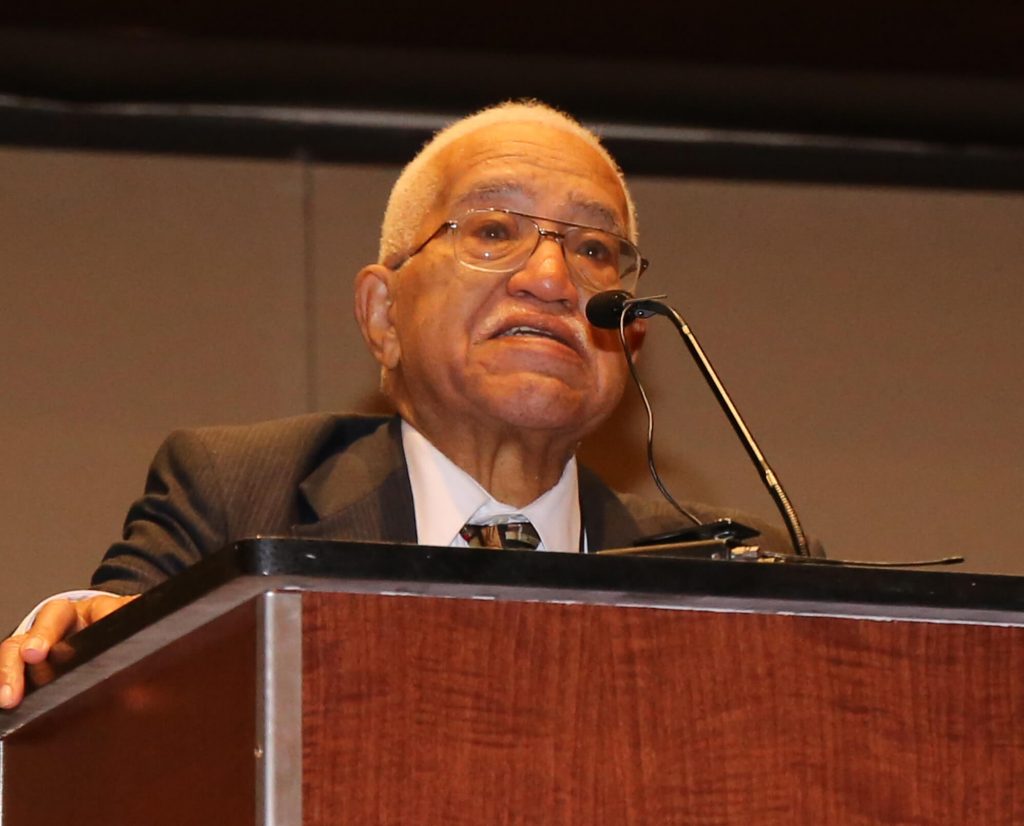
On receiving the award, Rubenstein said how humbled he was. During his acceptance, he emphasized to the judges at the luncheon to maintain their independence.
“It is what stands between our democracy and tyranny,” he said.
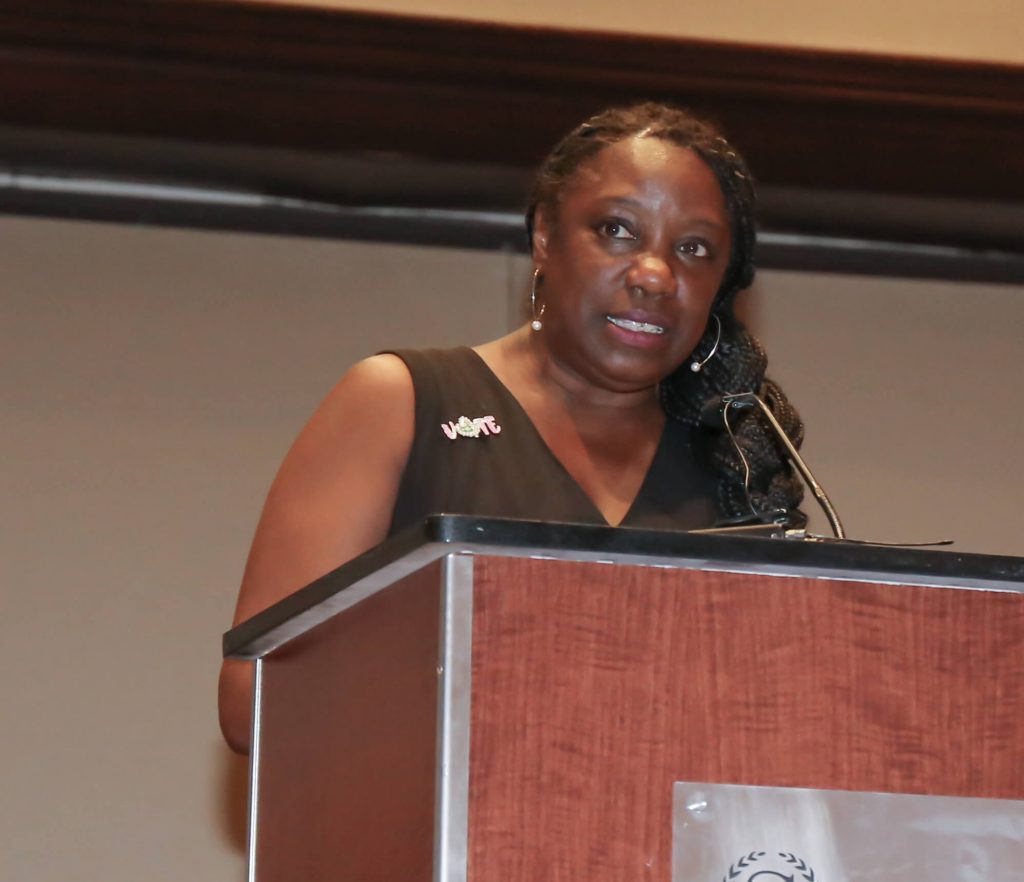
To young lawyers he urged, “Advocate on behalf of victims in the courtroom and in the streets, as well, to get change, so what happens to one victim does not happen to others.”
Rubenstein also signed his memoir, “The Outrageous Rubenstein: How a Media Savvy Trial Lawyer Fights for Justice and Change,” which all in attendance received.
